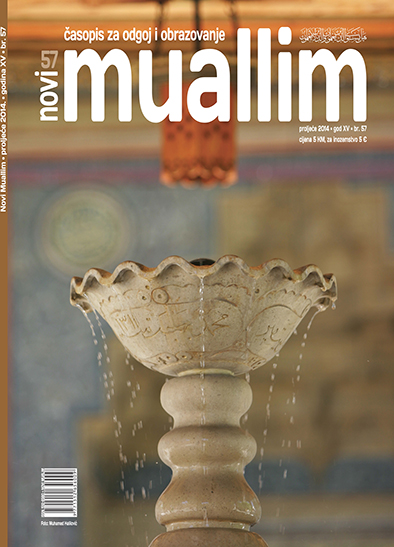ARTICULATING DISCONTENT BY THE PEOPLE IN THE ISLAMIC TRADITION AND THE SEARCH FOR NEW MODES
DOI:
https://doi.org/10.26340/muallim.v15i57.252Keywords:
Islamic tradition, government, ‘ulama, social disordersAbstract
UDK 28-428
The author analyses the modes of articulating people’s discontent in Islamic tradition and how the issue of the relation between government and citizens was tackled in the same tradition. The role of ‘ulama, as intelligentsia of the time and as the interpreters of the Shariah, in mediating between people and the government, is especially stressed here. The author suggests as one of the ways to fulfil the Muslim’s obligation to be socially responsible and to stand up against injustice, evil, corruption and other social disorders even if its source is legally elected and legitimate representative of people, or the Shariah – in the case of the Islamic tradition, without dragging the society into the whirl of anarchy, chaos and legal insecurity, is to show “civil disobedience” and exercise pressure upon the government through peaceful and non-violent methods as was done by many ‘alims in above mentioned anecdotes from their lives. Perhaps this could be a guideline for the new solutions for the “mujtahids” in reviving and developing, amongst Muslims long forgotten academic discipline: Es-Sijase eš-Šer‘ijje or political philosophy.
Downloads
Published
How to Cite
Issue
Section
License
Naknada:
a. Časopis ne naplaćuje naknadu za obradu članaka (APC) i naknadu za podnošenje članaka.
Autori koji objavljuju u ovom časopisu pristaju na sljedeće uvijete:
- Autori zadržavaju autorska prava i pružaju časopisu pravo prvog objavljivanja, pri čemu će rad jednu godinu po objavljivanju biti podložan licenci Creative Commons imenovanje koja omogućuje drugima da dijele rad uz uvijet navođenja autorstva i izvornog objavljivanja u ovom časopisu.
- Autori mogu izraditi zasebne, ugovorne aranžmane za ne-ekskluzivnu distribuciju rada objavljenog u časopisu (npr. postavljanje u institucionalni repozitorij ili objavljivanje u knjizi), uz navođenje da je rad izvorno objavljen u ovom časopisu.


